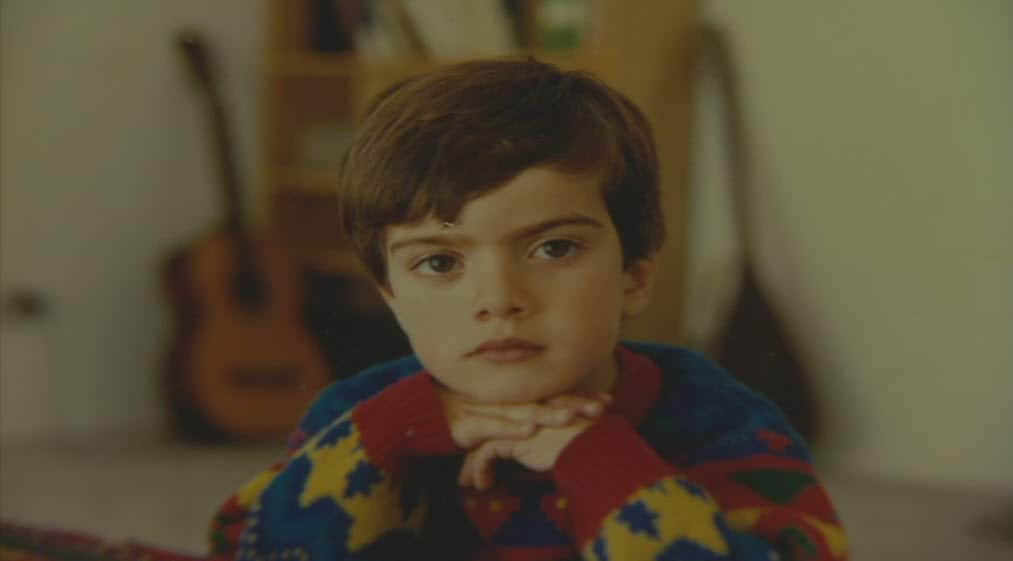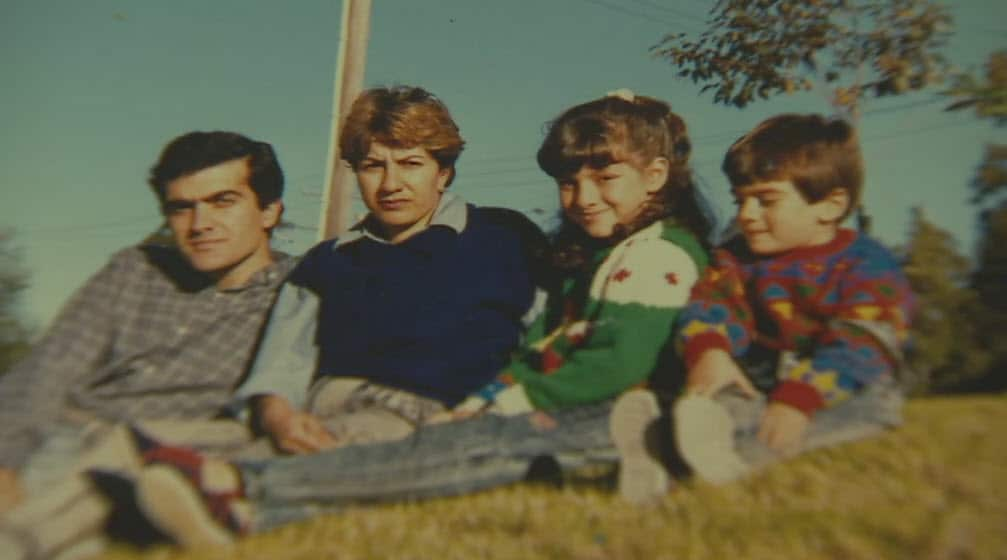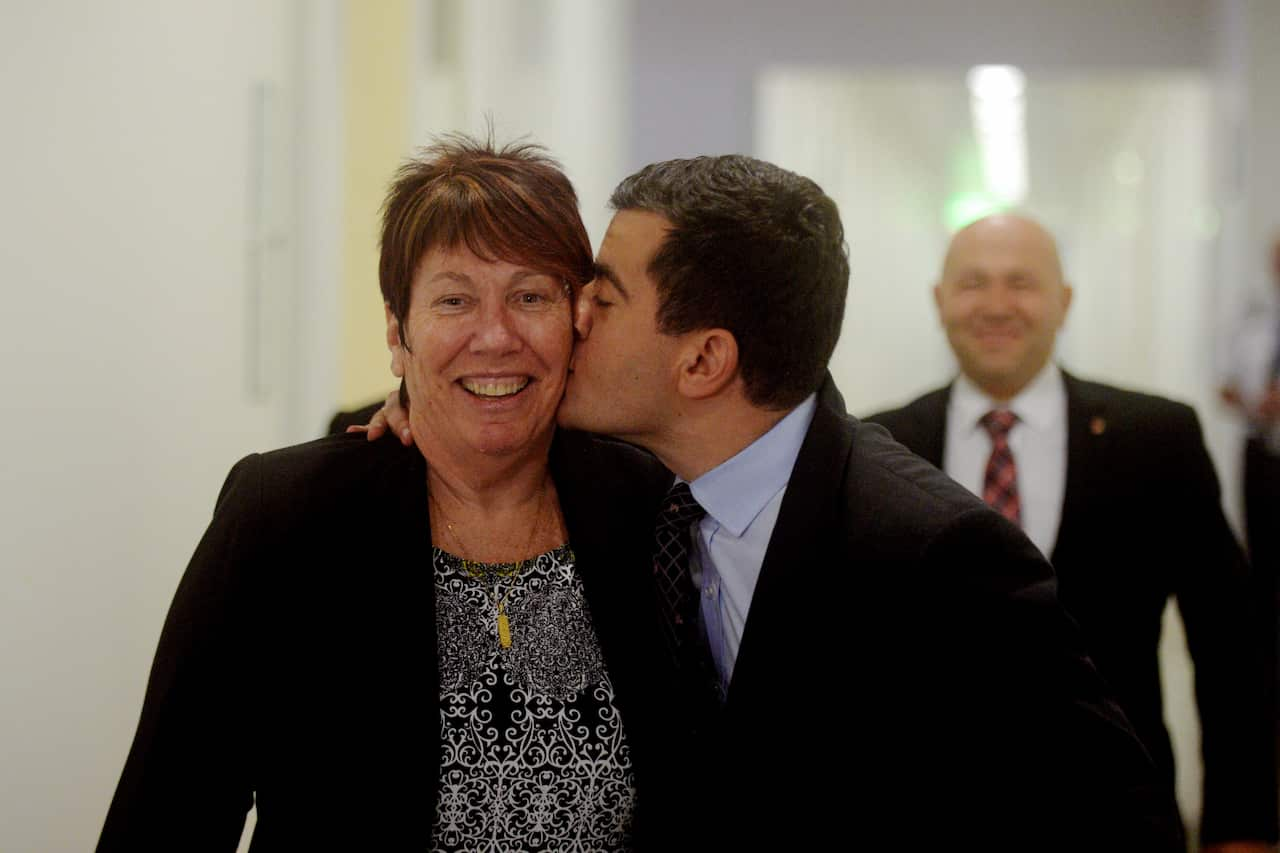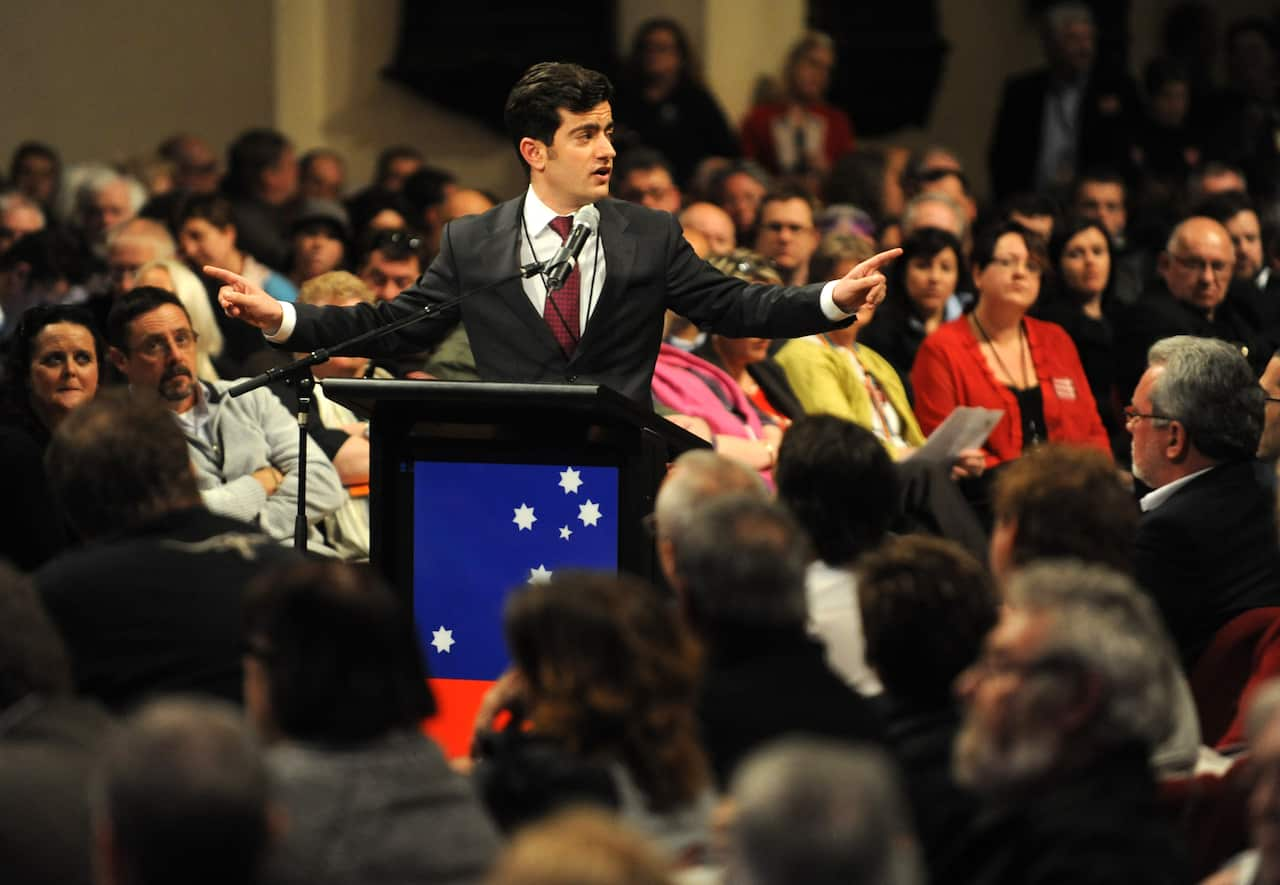- Read more in our Politicians Born Abroad series
- Eric Abetz: It’s not just Eric Abetz’s views on abortion and unemployment that have made headlines since he took a seat in the upper house
- Penny Wong: Her journey to becoming the first Asian-born member of an Australian Cabinet began in Malaysia more than three decades ago.
- Sussan Ley: How does a Nigerian-born punk with a childhood in the Middle East and a father in MI6 grow up to be in charge of Australia’s childcare policies?
“A better conversation about asylum seekers does not mean sacrificing our values or silencing honest criticism, but for the benefit of those who live here today and those who will live here tomorrow we need to take the politics out of this debate.
“That is what we need to do—stop the politics.”
This is the Sam Dastyari that most Australians know – politician, Labor stalwart and advocate for a big Australia.
The words spoken by the now 31-year-old in his maiden speech hint at his own background, one spent in a country more associated with bloody atrocities than immigration.
The Senator was born in warzone, brought up by his activist parents Nasar and Ella in the height of the Iran-Iraq war. It wasn’t until 1988 with the threat of capture looming that the then five-year-old and his family were granted visas, leaving their Iranian village for Australia.
It wasn’t until 1988 with the threat of capture looming that the then five-year-old and his family were granted visas, leaving their Iranian village for Australia.

Sam Dastyari as a child. Source: Supplied
Speaking to SBS in his parents’ Sydney home, Senator Dastyari spoke about the morning he was bundled into a car for the long drive to Tehran’s international airport.
Describing his arrival in Australia as a defining moment, he says his first impressions of the “magical place” consisted of heat, noise and excitement.
“We kind of came to this country and we came in the middle of a party,” he says.
“We came in the middle of this big bicentennial celebration with fireworks every night and events being held around the city. It was incredible.”
‘I want to say it was all perfect and all great, but it wasn’t’
The Dastyari family moved into what the senator called the “quintessential first migrants” home, above the railway in the Blacktown.
Alongside his best friend, a “little Greek kid” called Theo, Senator Dastyari began school without any English and without warnings about racism.
“I want to say it was all perfect and all great, but it wasn’t,” he says.
“Of course there’s going to be racism, Of course there’s going to be elements of intolerance.” Senator Dastyari says while there “so much indirect racism”, he knows what he faced pales in comparison to some.
Senator Dastyari says while there “so much indirect racism”, he knows what he faced pales in comparison to some.

The first Dastyari family photo in Australia, with the future Senator on the far right (Supplied)
“I’m very, very conscious that when we’re having the kinds of debates we have about racism, about the Racial Discrimination Act, that there is an experience that people like me have had that is very different than that of people like George Brandis,” he says.
“The Attorney-General says it’s ok to be a bigot. That comes from someone who hasn’t experienced that racism, hasn’t experienced what it’s actually like there on the playground.”
‘Some of these people at some point in time are probably going to be resettled here’
He may have been the self-described funny looking kid in the wrong uniform then, but 26 years later, Senator Dastyari is on the political front line.
Graduating from his role in NSW Labor to federal politics in 2013, he has been outspoken on the country’s “inhumane” asylum seeker policy.
He told SBS that the current system was unworkable.
“Can we have a fair, efficient, transparent, refugee processing system that also doesn’t encourage people to make the sometimes dangerous journey, that final leg by boat?” he said.
“Yes, but we can only do it if we’re serious about engagement with our partners. We can only do it if we’re honest and say that some of these people at some point in time are probably going to be resettled here.” He was also instrumental in securing support from independent senator Jacqui Lambie.
He was also instrumental in securing support from independent senator Jacqui Lambie.

Senator Sam Dastyari kisses Senator Sue Lines as they arrive for a Labor Caucus meeting in 2013. (AAP Image/Lukas Coch)
Her vote was essential in blocking financial advice laws, but Senator Dastyari hasn’t always been approving.
He described the former Palmer United Party Senator was an “idiot”, telling SBS that her “stringing together sentences that somehow involve the words Ebola, ISIS, terrorism” had isolated voters.
And it’s not the first time he’s had harsh words for his political competitors.
The senator has previously compared the Greens to political extremists and while he condemns racism, Senator Dastyari has used Senator Eric Abetz’s German origins to compare him to a fictional Nazi character across the chamber.
‘Political leaders have not been brave enough or strong enough’
While some of his actions may be surprising, Senator Dastyari’s career choice should come as no surprise to family friends.
His ethnic Azeri father and Persian mother, Nasar and Ella, were political activists prior to fleeing to Australia.
Mr Dastyari told SBS that while he and his wife were very proud of their son’s achievements, the political environments in their two home countries were very different.
“You’re really playing with your lives, for the smallest things,” he said of Iran.
“It’s a safe game here.’
Despite the physical safety, Mr Dastyari said Australian politics was still a “dangerous game”.
“When Sam went into politics, we all thought it was a really hard game to be in,” Mr Dastyari says.
“It’s a profession where you’ve got enemies, people want to put you down.” Mr Dastyari and his wife left their own political ambitions behind in Iran, moving to Australia to create a better life for their children.
Mr Dastyari and his wife left their own political ambitions behind in Iran, moving to Australia to create a better life for their children.

Sam Dastaryi, then general secretary of the New South Wales Labor Party, at the NSW Labor State Conference in 2011. (AAP Image/Dean Lewins)
It’s a sacrifice that their son acknowledges, and one which drives his focus on migration.
Senator Dastyari says voters are threatened by migration and change, but need to understand its necessity.
“The problem we have is that the political leaders have not been brave enough or strong enough to confront that fear,” he said.
“Migration is a sign of the health, the vibrancy, the energy of this country. If I was going to say one big policy area that really needs to get changed and approach needs to get changed, we have to start embracing this idea that we can be a big country with a big population.”
